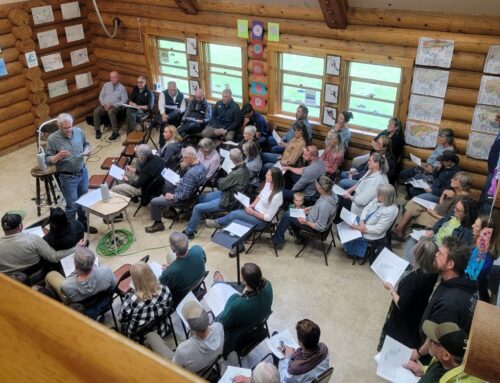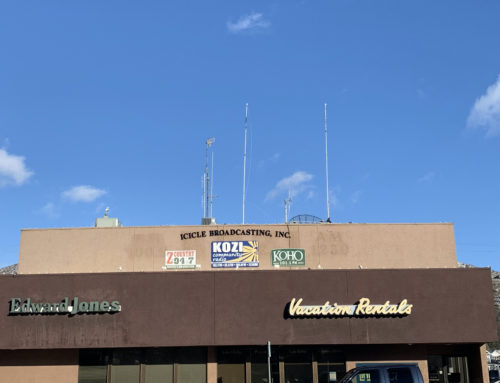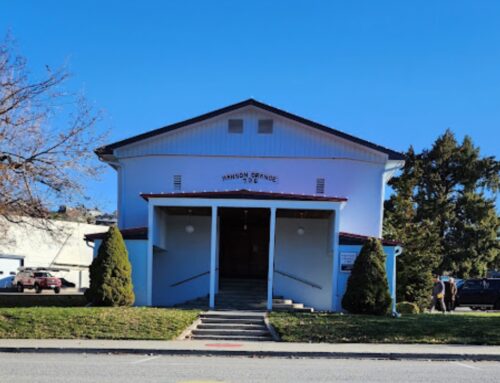Standards go into effect in late August
information released, file photo
The Chelan Board of County Commissioners today passed a new code that establishes operating standards for the short-term rental industry, which has seen rapid growth locally in most recent years.
The passage of the new code, Chapter 11.88, comes after more than two years of board and community discussions that included public hearings, board workshops and the formation of a task force consisting of both short-term rental owners and their neighbors. The topic has drawn nearly 2,000 comments to the Commissioners’ Office.
“Our goal was to find a balance: protecting the character of residential communities across the county while allowing for a reasonable number of short-term rentals in a county dependent on tourism,” said Bob Bugert, chairman of the Board of County Commissioners. “In crafting this code, we relied on extensive comments we received from the community, as well as a detailed assessment on how other counties have addressed this issue and our own evaluation of the practicalities of implementing a code that’s unique to Chelan County.”
“I thank the citizen members of both the Chelan County Planning Commission and the Short-Term Rental Task Force, who spent many hours developing recommendations to the commissioners,” Bugert added. “This was a difficult process; however, in the end, it was a decision based upon unprecedented community involvement.”
The Community Development Department, which will oversee the permitting of short-term rentals, estimates there are up to 1,500 known rental units in Chelan County. Most are single-family homes offered as short-term rentals. A recent report by the county’s contractor, BERK Consulting, shows a 55 percent increase in the number of short-term rentals from 2015 to 2019 in unincorporated Chelan County.
The new code will become effective in late August. At that time, a moratorium on the creation of new short-term rentals, which has been in place since August 2020, will end. All existing short-term rental operators will be afforded the opportunity to apply to be grandfathered in, as long as they meet a set of provisions established by the code.
Among the new code’s standards are:
- The code establishes three operation levels: Tier 1, 2 and 3. Overnight occupancy is limited to two people per bedroom. Tier 1 allows for up to eight people; Tier 2 allows for up to 12 people; and Tier 3 allows for up to 16 people. Rentals lodging more than 16 people are considered a lodging facility and are governed under different standards.
- Daytime occupancy limits, which match overnight occupancy limits, cannot be exceeded without first applying for and obtaining a conditional use permit from Community Development. The conditional use permit would be necessary for such events as a wedding or another large gathering.
- All tiers must be operated out of an owner’s primary dwelling or a legally established accessory dwelling unit. Recreational vehicles, tents or other temporary or mobile units are not considered short-term rentals.
- The new code holds property owners responsible for resolving nuisance violations (excessive noise, garbage, unlawful parking, etc.) on their properties. Two verified public disturbance noise violations within six months may lead to the revocation of a short-term rental permit.
- Annual registration fees will now apply; they will vary, depending on an applicant’s tier level and any issues specific to the property. Registration fees will finance inspections by the fire marshal and health district, permit processing by the county, and recovery of code compliance costs.
- A short-term rental permit expires annually on Dec. 31, regardless of when it was issued. If a permit application is not received by then, a short-term rental must cease operations.
- In most parts of Chelan County, the maximum share of short-term rentals, in relation to total housing units, is capped at 6 percent. The exception is in the urban growth area of Manson, which is capped at 9 percent. Tier 1 short-term rentals are not subject to the cap.
On Monday, Kirsten Ryles, manager of Community Development’s newly created Short-Term Rental Division, also stepped into her new role. Ryles will be tasked with helping build the short-term rental program and its processes and with overseeing the implementation and operation of the new division. A new website for the division is in the works. The community should watch for permit applications to be posted to the website in September.
Changes have been made in how Chelan County handles code enforcement, which will play a factor in enforcing the new code and its standards. Earlier this year, code enforcement was moved to the Sheriff’s Office and two former law enforcement officials were hired to serve as code enforcement officers.
“It will take us some time to get the enforcement element developed and implemented, and it may take several months before we have a robust response program in place,” said Jim Brown, director of Community Development. “We are asking for the public’s patience, as the new program will be phased in over a period of time.”








